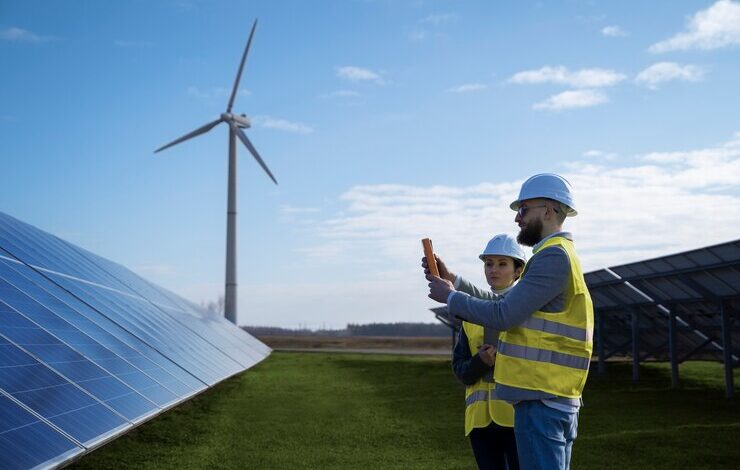20 Unwritten Rules About Renewable Energy

Renewable energy is transforming the way we power our world, with solar, wind, hydro, and geothermal technologies leading the charge. While the science and mechanics of renewable energy are widely understood, there are also numerous “unwritten rules” that shape how we approach and implement these sustainable solutions. Here are 20 such insights that go beyond the technicalities:
1. It’s Not Just About Technology, but Community
Renewable energy projects succeed when communities are on board. Engaging local populations early ensures smoother implementation and greater support.
2. Policy Drives Progress
Advancing renewable energy isn’t just about innovation—it requires robust policies and incentives. Governments play a pivotal role in setting the stage for widespread adoption.
3. Energy Efficiency Comes First
Before installing renewable systems, reducing energy waste through efficiency measures is crucial. The cleanest energy is the energy you don’t use.
4. Location Matters
The success of renewable energy depends heavily on location. Wind farms thrive in windy regions, solar panels need ample sunlight, and geothermal plants require specific geological conditions.
5. No Single Solution Fits All
Diverse energy needs require diverse solutions. Combining multiple renewable sources often provides the most reliable and sustainable outcomes.
6. Storage is the Secret Weapon
Battery storage is the backbone of renewable energy reliability. Without it, fluctuations in supply can undermine clean energy’s potential.
7. Grid Integration is Key
Renewable energy needs modernized grids to distribute power effectively. Smart grids enable efficient energy flow and balance supply with demand.
8. Maintenance is Non-Negotiable
Like any infrastructure, renewable systems require regular maintenance to operate efficiently. Neglecting upkeep can lead to reduced performance and costly repairs.
9. Education Fuels Adoption
Public understanding and awareness of renewable energy drive adoption. The more people know about its benefits, the more likely they are to support and invest in it.
10. It’s Not a Zero-Sum Game
Transitioning to renewables doesn’t mean abandoning traditional energy sources overnight. Hybrid systems can bridge the gap during the transition.
11. Local Resources Should Be Prioritized
Using local materials and labor for renewable energy projects reduces costs and strengthens community ties.
12. Small-Scale Solutions Matter
While large solar farms and wind farms grab headlines, small-scale installations like rooftop solar panels play a crucial role in decentralizing energy production.
13. Innovation Never Stops
The renewable energy sector evolves rapidly. What works today might be outdated tomorrow, so staying updated with the latest technologies is essential.
14. Financing is as Important as Technology
Affordable financing options make renewable energy accessible to more people. Creative models like leasing and power purchase agreements drive adoption.
15. Balance Environmental Impact
Renewable projects must minimize their ecological footprint. For example, wind farms should be placed to avoid bird migration paths, and solar farms should not displace vital ecosystems.
16. Collaboration is Crucial
The energy transition requires partnerships between governments, private companies, and non-profits. No single entity can tackle this challenge alone.
17. Expect Resistance
Despite its benefits, renewable energy projects often face pushback due to misinformation, aesthetics, or land use concerns. Overcoming these barriers requires transparency and dialogue.
18. Plan for End-of-Life
All renewable systems have a lifespan. Proper planning for recycling or repurposing materials, such as solar panels or wind turbine blades, is essential for long-term sustainability.
19. Equity and Accessibility Must Be Prioritized
The benefits of renewable energy should reach everyone, not just the wealthy. Ensuring affordable and equitable access is a cornerstone of a just energy transition.
20. The Goal is Energy Independence
Renewable energy isn’t just about reducing emissions; it’s about creating energy systems that are resilient, locally sourced, and less dependent on volatile global markets.
The shift to renewable energy is as much about people, policies, and collaboration as it is about technology. By embracing these unwritten rules, we can navigate the challenges of clean energy adoption and move closer to a sustainable, equitable future.




